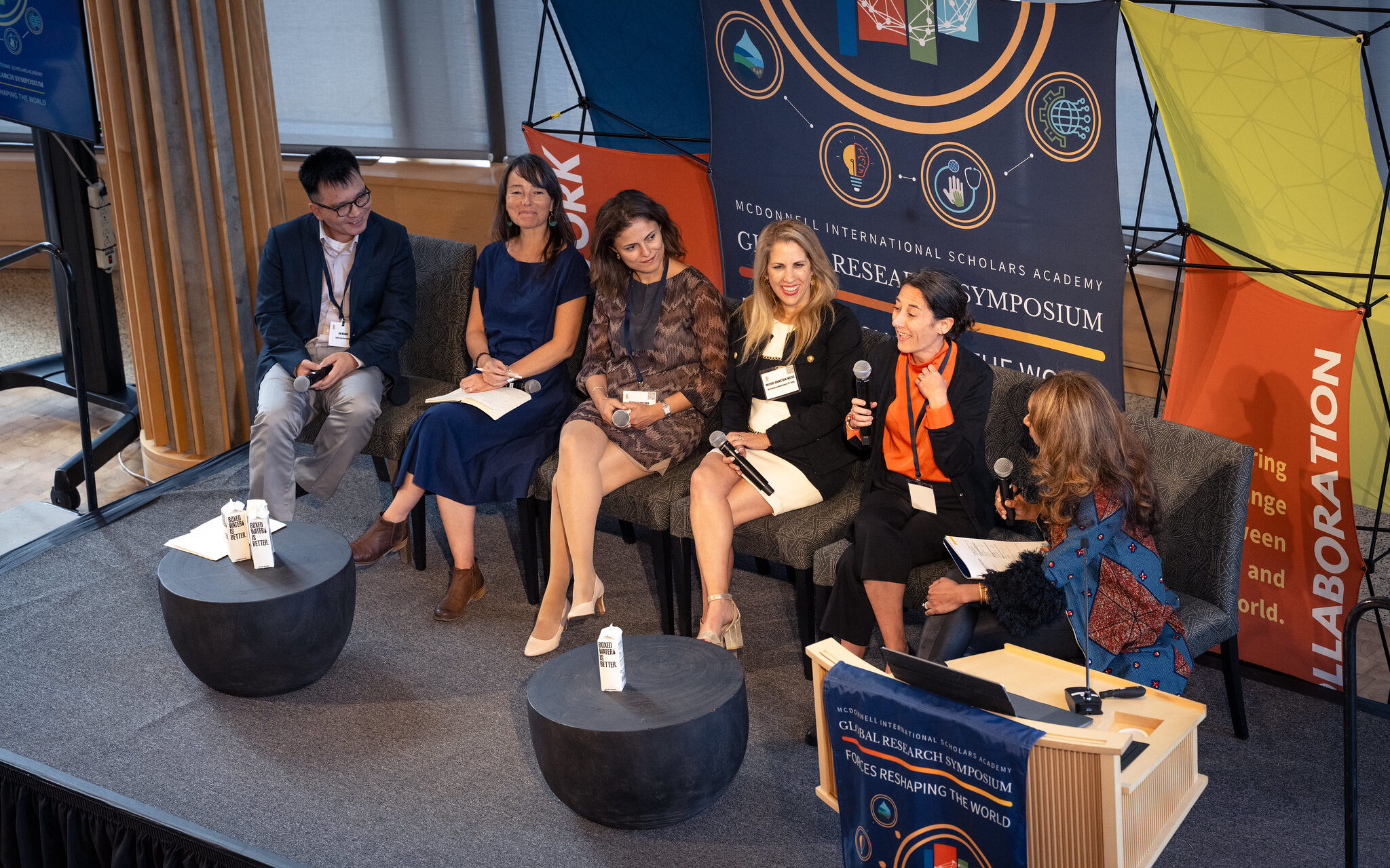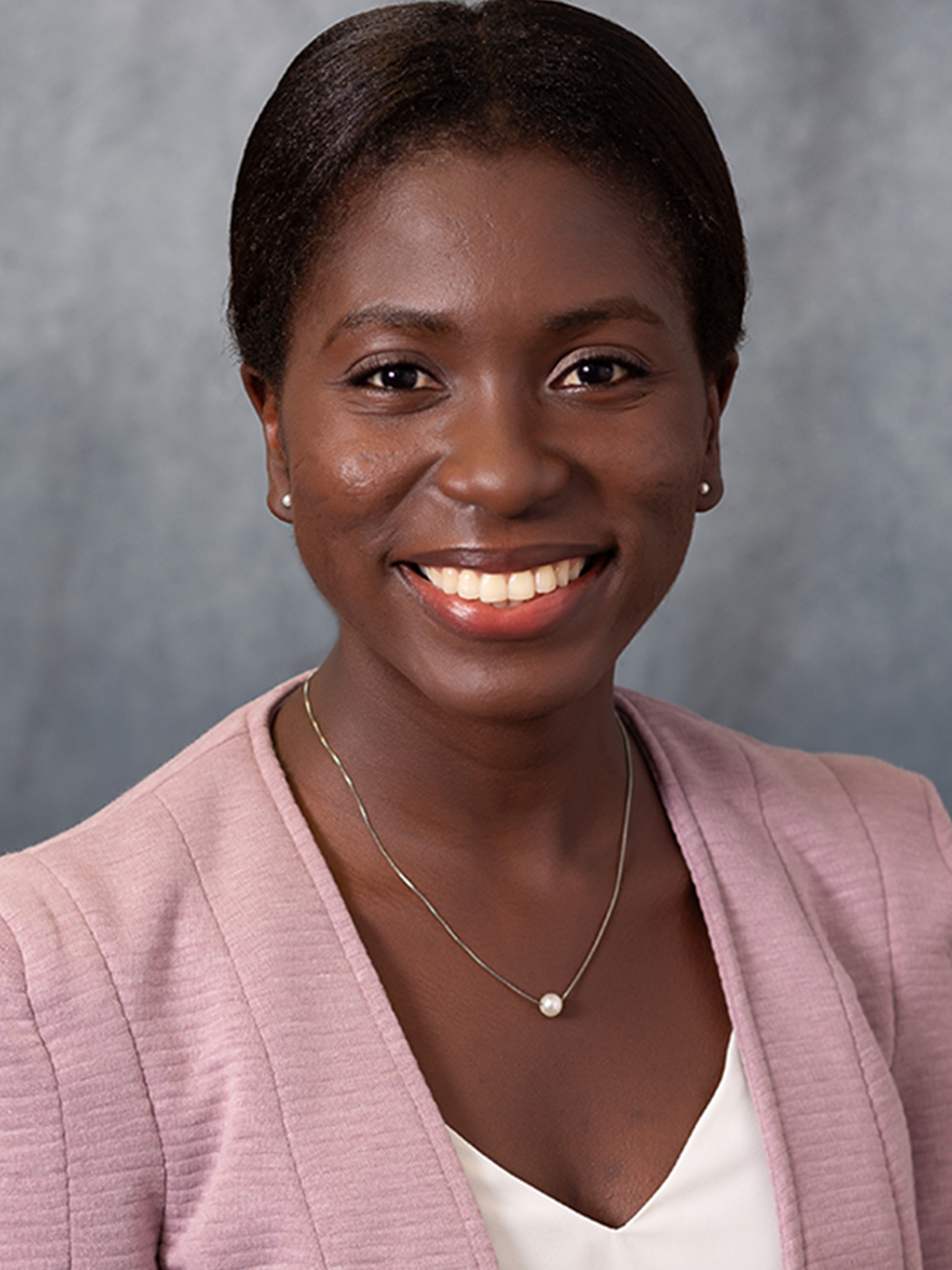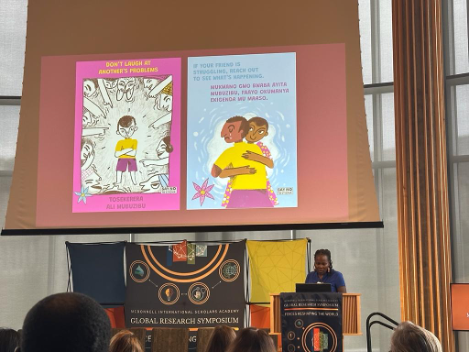As diseases have no boundaries, interdisciplinary collaboration should not either
October 6, 2023 | Ekua Mbrah Inkoom, McDonnell Scholar

Professor Shanti Parikh began the Social Innovation session of the 2023 McDonnell International Scholars Academy Symposium on a strong note by asking, Are diseases creative and omnipresent, and why are we in siloed disciplines in academia? Our research, as evinced in the social innovation session, must disrupt social boundaries and siloes as diseases do. Parikh is the chair of African and African-American Studies and professor of sociocultural anthropology and of African and African-American Studies in Arts & Sciences at Washington University in St. Louis.
McDonnell Academy Seed Grants Drive Community Impact Globally

Hispanic Studies PhD student in Arts & Sciences
The session highlighted different ways through which the McDonnell International Scholars Academy supports interdisciplinary research through its seed grants. While Penina Acayo Laker, assistant professor of communication design at the Sam Fox School of Design & Visual Arts at Washington University in St. Louis, showed us the impactful drawings of Ugandan children to emphasize the importance of engaging the community through visuals to address mental health stigma, Michal Grinstein-Weiss, director of the Social Policy Institute, Shanti K. Khinduka Distinguished Professor, and associate dean for policy initiatives at the Brown School at Washington University in St. Louis, highlighted how the McDonnell Academy and Beyonce work together, indirectly, through their seed grant and impact fund respectively to support research on Child Development Accounts through policy innovation from the U.S. to Israel.


Professor Penina Acayo Laker and Professor Michal Grinstein-Weiss presenting their work during the social innovation session.
The presentations by both Yasemin Sohtorik İlkmen, assistant professor of clinical psychology at Bogazici University, and Kim Thuy Seelinger, research associate professor at the Brown School at Washington University in St. Louis, showed the global extent of mental health challenges, with case studies on Afghan refugees in Turkey and people in St. Louis, Uganda, and Chile. Professor Thuy Seelinger went on to show why global comparisons were important. Her research on determining the relationship between COVID-19 and intimate partner violence identified commonalities between the three case studies (St. Louis, Uganda, and Chile), which included the lack of priority in financial terms and human resources to address intimate partner violence.
All children—especially the poor and vulnerable—must have a financial footing to reach their potential.”
Li Zou
Long-term Asset Building Initiatives Expanse in Other Multiple Regions
After inspiring us with Singapore’s Baby Bonus Scheme, where every newborn baby in Singapore gets a cash award of $11,000 into their Child Development Account (CDA), Co-Director of the Next Age Institute Li Zou advocated the importance of collaborations by mentioning how successful CDA projects in countries like Singapore and Israel have inspired other countries like Nepal, Ghana, Colombia, and Kenya to develop projects that implement similar policies. All children—especially the poor and vulnerable—must have a financial footing to reach their potential,” says Zou.
The session ended with a panel discussion that highlighted how the COVID-19 pandemic had taught us lessons about conducting research online, and how technology is facilitating global and interdisciplinary research and innovation. Jin Huang, professor of social work at Saint Louis University, ended the discussion with powerful words emphasizing that social innovation is planned, intentional, and concrete, and therefore needs to be tested. With the McDonnell Academy seed grants, this “testing” is being made possible to improve lives around the world.